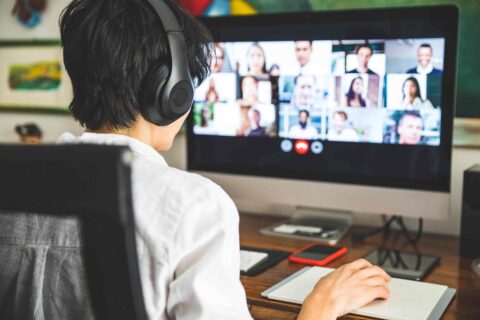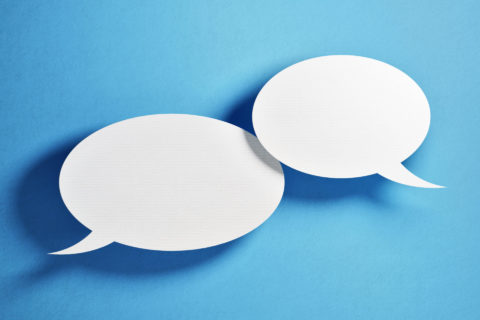This paper will be discussing three critical issues that human beings are likely to face as a consequence of social distancing and its emotional and psychological ramifications.
- Part 1 – dealt with the conflict the notion of social distancing creates for us.
- Part 2 – will cover coping with disruption and the creation of a microcosm within the home and the emergence of a different self.
- Part 3 – will detail the two coping behaviours that deal with the anxiety of the unknown and the emergence of a higher purpose and a new meaning system.
Creating the microcosm within the home and the new self
Coping Behaviours: The process of normalization very often brings into focus three coping behaviours that we will discuss in the following sections.
The first coping mechanism is for the individual to face the self while creating a new paradigm of life as normal. Who am I and what am I are spiritual reflections that are bound to emerge as one is forced to spend more and more time with oneself?
But often the focus on creating the new normal may bypass the spiritual inquiry and focus on re-creating a familiar universe within the home. The endeavour is to make the home now the hub for all that is familiar and comforting and yet preserving the integrity of activities and relationships that are important to the individual.
The space within the home is re-oriented making way for work and productivity that the individual considers critical to retain the sense of being productive and valuable. Time too, is now forcibly restructured to include domestic work, a fitness routine, child, plants, pet care, and working from home productivity.
Leisure and pleasure are also given a designated time and space to feel special. New virtual rituals are put into place to create bonding with friends and family. The use of video and voice-based apps like House Party, We-Chat, WhatsApp become facilitators for this networking and bonding.
While this re-structuring of space, time and effort helps the individual navigate what he or she considers an important routine, it also begins to subtly create emotional and psychological transformations.
- A sense of coming to oneself and enjoying the shift of attention from external pushes and pulls to being with oneself. Some find this return centering and spiritually uplifting. Others may find the burden of their own company onerous and depressing. But some form of self-reflection begins.
- As the external supply chain becomes disrupted a back to basics mindset begins to creep in. Old routines, old ways of consuming and living begin to get evaluated and altered to fit the new reality of scarcity and non-availability. This does result in a realisation that one can manage with less.
Here again this can go two ways; a re-evaluation of our addiction to consumption and a desire to be more sustainable in the future or a resignation to this period of deprivation with the hope that one can go back to being the consumption junkie one always was when the isolation ends.
- Creating the new normal within the home forces one to re-organise time, space and effort to be in a new reality. Working from home and still being productive and connected via technology also results in a subtle shift in the way we think our work world should be constructed and navigated.
As a firm that works with consumer in-sighting and design strategy I have noted a number of subtle and obvious changes that have taken place in the way we work. For one, all travel and face to face interactions have come to an end given the forced social isolation. This has forced us as a team to raise some critical questions.
- Do we really need to be on the plane so often to be truly connected or productive? Are virtual meetings not as effective for decision making and problem solving?
- Can we not stay in touch with our clients and work mates virtually and what is the quality and nature of these relationships?
- Can we innovate new ways of working using virtual technology? Teams have ensured ways of being in touch with consumers, clients and the world out there.
It goes without saying that the challenges are way more complex for work forces that are involved in manufacturing, banking, blue-collar jobs, traders, delivery services, essential services, agricultural work, and providing civic amenities and civic governance etc.
The new hunkered down reality for a large section of our population means being without income, real jobs, and resources or being forced to continue working despite the threat, to ensure mere survival. The psychological and emotional impact of this isolation is an increase in uncertainty and a fear of being solvent in the future.
This will impact the way a large section of our society will consume, spend, and invest. The behaviour is likely to mimic war time conservation. Luxury and pleasure will be deferred for what is essential and linked to sheer survival – what is referred to as a ‘siege mentality’. Who gets what within the society may result in future tensions and fissures in the social fabric of the haves and the have nots?
In my view the strongest emotional impact will be felt in the sphere of relationships and bonding. Social distance means maintaining physical distance and there is some inherent loss of intimacy and contact built into this injunction. Virtual hugs, emoticons to express emotions cannot substitute the need for physical contact and the healing quality of love conveyed through physical touch.
Video based apps are being widely used by parents and grandparents separated from their families. While the voice and the face may convey the love and affection can it be a real substitute for a physical hug or physical play.
At the same time couples and families are being forced into close proximity within the homes and being asked to spend many hours together. This results in its own tensions and frustrations and these are exacerbated when physical space is an issue. A young friend counselled me to imagine that there was a fictional character present in our midst who we could blame when things were not being done as we wished them to be and when one wished to vent about a spouse or children. This was the invisible punching bag who could be derided for bad behaviour and negligence of duty.
Part 3 of 3 of this series, detailing the two coping behaviours that deal with the anxiety of the unknown and the emergence of a higher purpose and a new meaning system, will be published next week, 2 June. (ed.)



2 comments
Thought provoking as usual. The impact on the younger generations which has seen less of managing with less could offer surprises in how societal shifts take place. The re-evaluation and re appraisal of the self has already embarked many of us in search of meaning and purpose.
As we unlock and reopen, question is how deep and permanent this change will be and what permanent transformation it will bring about. Or will it mean reversal to the long term mean of society, albeit with 1 degree standard deviation.
Great article Meena.
My thoughts: as with any behavioral response, the context and environment will be key to any coping mechanism. Till 2 months ago, situation here was near normal with some telecommuting and few restrictions and primary focus was on self-monitored personal behavior and hygiene, whereas last 2 months it is almost 90% lockdown but still allowing some movements. This allows, some form of release as compared to a extreme form of no-leaving-home law. Plus of-course the socio-economic context. So external stimuli will determine a lot of responses for example towards ‘submission to authority’. We have seen different levels of acceptance of government advisories or interventions across the world. More so when it clashes with strongly held belief systems.The other factor which is impacting the responses is the age group. People with regular jobs, albeit from home, have created new routines and work spaces. Whereas older folks for whom social interactions are critical to mental and physical well-being are finding things more stressful. Aren’t we all subject to our reptilian brain? Look forward to 3rd installment.